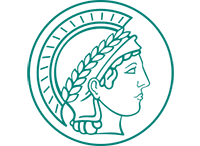Prof M Tsiantis, Dr A Hay
Applications accepted all year round
Funded PhD Project (Students Worldwide)
About the Project
A Ph.D studentship is available at the Department of Comparative Developmental Genetics in Cologne under the supervision of Prof. Miltos Tsiantis and Dr. Angela Hay to study natural variation of shoot and leaf form in the Arabidopsis thaliana relative C. hirsuta. QTL (Quantitative Trait Loci) for these traits have been mapped and validated. The successful applicant will join a subgroup working in the area and continue studying these QTL to understand how relevant genes act, respond to environment and to understand their possible adaptive significance. S/he will also use association mapping to find novel QTL for these traits in C. hirsuta. The student will gain expertise in quantitative genetics and developmental biology. The successful applicant will be highly motivated and willing and able to conduct high level basic research in a fast moving field and have a strong background in genetics including an M. Sc. in this area. The project will also involve a collaboration with Richard Mott at the Wellcome Trust Center for Human Genetics at the University of Oxford and Dr Xiangchao Gan in Cologne.
The Max Planck Institute for Plant Breeding Research (MPIPZ) (http://www.mpipz.mpg.de/) is one of the world’s premier sites committed to research into fundamental processes and training in plant biology. There are four science departments, three independent research groups and specialist support, totaling ~ 400 staff including externally funded positions.
The Max Planck Society is committed to employing disabled individuals and especially encourages them to apply.
The Max Planck Society seeks to increase the number of women in those areas where they are underrepresented and therefore explicitly encourages women to apply.
Applications including contact details for two referees should be sent to Christiane Wojtera [Email Address Removed].
Max Planck Institute for Plant Breeding Research, Department of Comparative Developmental Genetics , Carl-von-Linne-Weg 10, 50829 Köln

 Continue with Facebook
Continue with Facebook

